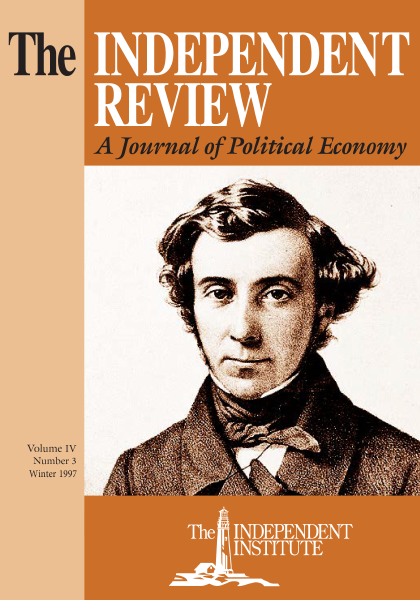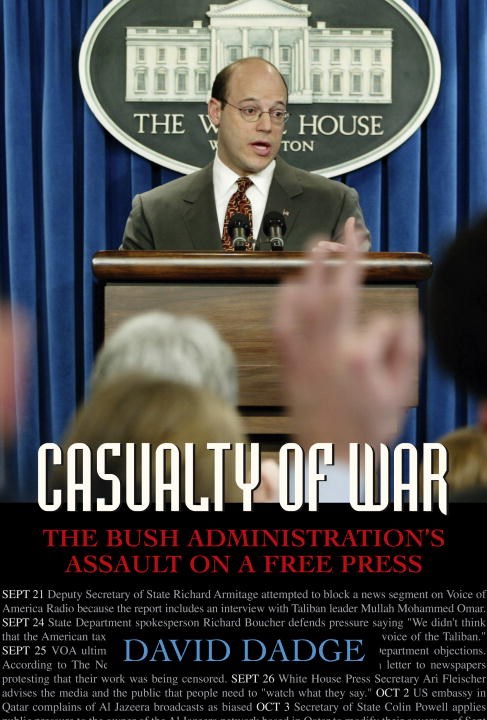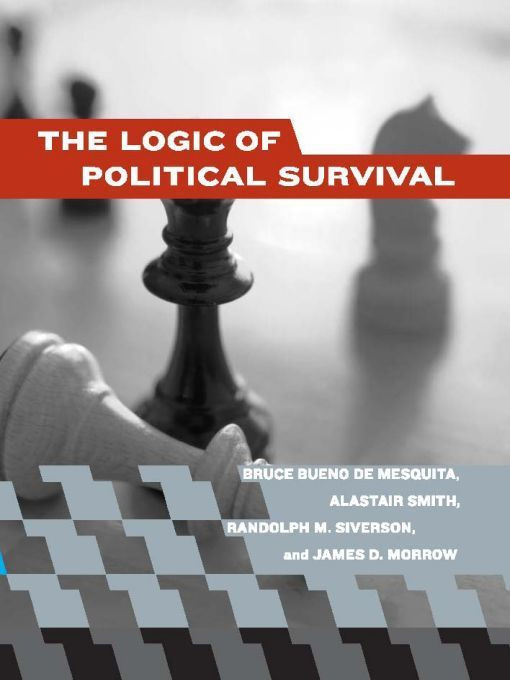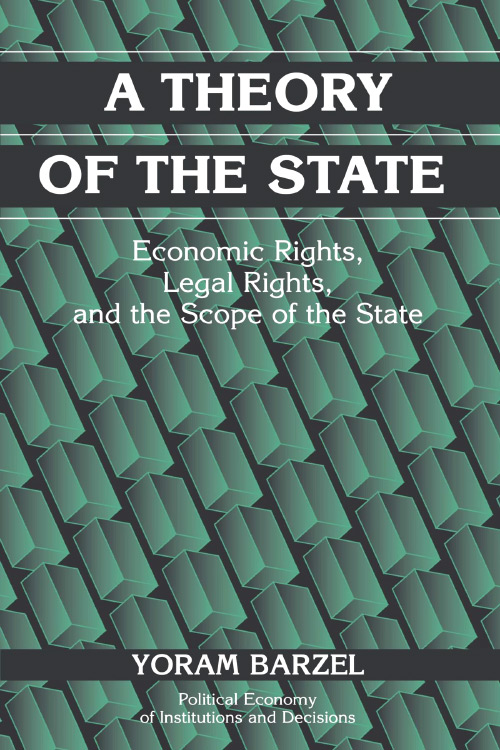This engaging and intelligent book offers a general defense of a fairly thoroughgoing political libertarianism. It opens with an extraordinarily interesting account of moral foundations, proceeds to a central section on liberty and government, including a very perceptive chapter on the U.S. Constitution, and concludes with a substantial section on liberty and economics informed by important recent scholarship. Lansing Pollock argues that government programs designed to promote health, education, or welfare not only defeat freedom, but do not promote health, education, or welfare. The tendency to deal with perceived problems by mounting another government program, supported by taxes, is counterproductive. Moreover, Pollock has specific recipes for what to do about it. We could, if Pollock is right, undo the damage of the past sixty years in perhaps thirty, and long before those thirty have elapsed be well on our way to enjoying a far more prosperous, happier society.
Because I agree with the author on the major points, and am impressed by his program as well, I will take modest issue with part of his methodological framework and with his defense of even the very limited state he supports. The reader may find these modest criticisms of largely theoretical interest. Nothing I say, moreover, is intended to discourage perusal. Quite the contrary: this is definitely a book to be read, both by those of us who immerse ourselves professionally in these matters and, perhaps even more so, by the intelligent layman.
Pollock says only a little about contractarian theory. He notes that John Rawls, Thomas Scanlon, and I come to different conclusions about what rational persons would contract for. This disagreement hardly shows that contractarianism is misguided. Pollock later proposes as a major criterion of appraisal of an ethical theory that it have “explanatory power.” One can hardly quarrel with that, but one can quarrel about just what is to be explained: our intuitions about what is right and wrong, for instance? And if those do not coincide, then what? Does this disagreement evince a lack of explanatory power? (One might argue that one of the things to be explained is that some moral disagreements are not easy settled; one might take the continuing disagreement of contractarians on some matters as evidence of the theory’s explanatory power about that!)
Libertarianism rests on the freedom principle, as Pollock calls it. Its “underlying idea is that interaction should (ideally) be based on mutual consent” (p. 10). I agree with that; but notice that to do so is virtually to accept the social contract. I have argued that the social contract will settle on the freedom principle. That argument seems to me more powerful than just affirming the principle and conjecturing that it has explanatory power. In fact, there is something a bit odd about asking morality to explain the facts: isn’t morality itself what needs explaining? We need to see what the best moral theory is, in view of the way people are. I doubt that Pollock would disagree: indeed, he rightly criticizes some theories for apparently ascribing to people properties these people are known to lack. Utilitarianism is a classic case in point. No actual person believes, in daily practice, that if spending $100 on food for some unknown person in Turkestan would create more happiness than spending it on a toy for his children, then he ought to buy food for the stranger. A sane morality must work around such things, not steamroll them. Or rather, a sane view of what moral theory should do will point out this reality, and go from there.
In his introduction, Pollock proposes that morality “requires respect for persons as free and equal beings” and that “the values of freedom and moral equality can be combined in one fundamental right, the equal right to be free” (p. 1). The equality in question, however, is unclear and needs explaining, especially if we reject egalitarianism, as Pollock does. In fact, the equality of the right to be free surely consists in nothing more than everybody’s possessing that right as his or her sole ultimate general moral right. Pollock also proposes to “contrast two approaches to moral thinking”—consequentialism and what he calls “Kantianism.” According to the former, “we should produce the greatest balance of pleasure over pain”; according to the latter, “the primary concern of morality is how persons should relate to each other” (p. 19). But the latter is nothing more than a definition of the domain of morals, not an “approach”: utilitarianism, for example, is a theory of how persons should relate to each other.
Many moral philosophers claim that people have, in addition to the equal right to be free, the “equal right to basic goods.” Pollock calls this “dualism” and points out that it is possible to be “a theoretical dualist and a libertarian in practice” if one holds that the best way to ensure that people have basic goods is to let them work and, where necessary, rely on voluntary programs of assistance. But the terminology is inappropriate. For if libertarianism maintains we do not have a duty to feed the needy, whereas dualism does, then the two would seem to be theoretically incompatible but, owing to the contingent truth of the point just stated, practically compatible. They can be made theoretically compatible if one takes precedence over the other. But the right to freedom is special. If we have a right to do what we like, provided only that we do not harm others, then we cannot be forced to do anything else. A right to the satisfaction of basic needs is ordinarily propounded as a positive right, which entails a duty that others cater to it. They must do so if it is actually a right. A right does not exist if you are excused from its duties simply on the ground that you don’t want to carry them out; but a right to be free, limited only by the same right of others, allows precisely such an excuse.
Turning to the State, Pollock asks whether we can have a government “strong enough to protect rights but that does not violate rights” (p. 58). If government imposes taxes for its support, the answer is evidently no.
Pollock advocates doing without taxes eventually, resorting in the meantime to user fees instead. This system could approximate market anarchism, provided the fees were equal to the prices one would pay for the services on the free market. The proposed user fees amount to a resource tax “equal to what the land [or other resource?] would lease for—if it were leased” (pp. 58–59) Revenue from that source would fund the police and, if necessary, national defense forces. Why a resource tax? Income and sales taxes, he says, violate property rights. Why don’t resource taxes do so? Pollock claims that they are really fees for use; one pays for the right to exclusive use of the property, and if one doesn’t want to pay, one simply refrains from using it.
This proposal raises basic questions about property. “Most libertarians believe that natural resources should be privately owned.... The fundamental problem for this view is to explain how persons acquire exclusive rights over natural resources. I believe that there is no good answer, within the standard libertarian framework, to this problem” (p. 61). Some of us think we have given an answer. Presumably no libertarian worries about how we come to acquire exclusive rights to our selves, for example, although our selves are quintessential resources. In fact, we don’t “acquire” such rights; we assert them against other persons, who in turn assert them against us, and our agreement is to respect the rights in each other’s selves.
What about natural resources? Notice first that no natural entities as such are resources. Human effort and ingenuity make them resources. The lease value of a natural entity as such is always zero. A natural entity for which a use has been discovered has value. The persons who discovered this use have, prima facie, done the rest of us a useful service; we can make it worthwhile for people to discover more such uses by buying their information or the products they manufacture by utilizing it. Most writers, including Pollock and many others far to his left, agree that people should be able to use things if they acquire them first: “a first appropriator...has incorporated this resource into his projects, and this gives us a reason for not interfering” (p. 61). Indeed it does; and there is no basis for charging someone for having become the first appropriator.
But, says Pollock, “Obviously there is a huge jump from thinking that we should not interfere with an agent’s ongoing use of some land to the conclusion that the agent has a permanent, bequeathable right to the land” (p. 61). Why? With luck, effort, and ingenuity, the value of the land might rise between its first acquisition and its eventual sale or transfer. But at each step, one has secured agreement with all relevant parties—the whole point of the freedom principle. One does all these things without (necessarily, or for that matter ordinarily) violating anybody’s rights. Indeed, at each step the other people with whom one deals are better off as a result of the dealing. This sequence is hardly a “jump” licensing the wholesale forfeiture of resources to the State. Yet the taxation of resource users amounts to precisely that.
To survive, states must impose taxes, and all taxes are evil. Elsewhere Pollock agrees that the only thing to do, if one must have a state, is resort to the least onerous tax. But why have a state? Near the beginning, Pollock offers what he agrees are familiar objections to anarchism: “the general point is that the risk that anarchism will lead to anarchy (in the pejorative sense of the term) is too great” (p. 2). One might respond by suggesting that the risk that a state will degenerate into totalitarianism is, likewise, too great. Suffice it to say that this issue requires a research project and that Pollock’s position has the important merit of realism.
The State is not about to go away, but maybe we could realistically do something to make it better. The rest of the book can, and I think should, be read in that spirit, though not in the spirit of its having established a case for the State in any form. Unfortunately, the State’s mishandling of the very powers that every statist thinks are most essential to it—police and judicial powers—gives rise to our greatest sorrows.
On the other hand, Pollock is well aware of the solidly empirical nature of the case against the welfare state. Disarmingly, he notes, “This is a hard pill to swallow; I speak from experience, for I have wavered on this issue many times. I am now convinced, however, that the failure of government programs to reduce poverty means that a radically different approach is needed and that the libertarian solution is better than the alternatives” (p. 3). He may yet reach that conclusion about police powers, too, especially if he bears in mind the facts, of which he is well aware, about the American experience with drug laws. Police with monopoly powers are unguarded guardians.
One of the many outstanding chapters in this book is the one on the U.S. Constitution. It is instructive to see how plausible a robustly libertarian reading of that document is. Pollock first argues, correctly in my view, that in the Declaration of Independence the rights to “life, liberty, and the pursuit of happiness” refer to just one right—the equal right to liberty. The right to life is the negative right not to be killed, and the pursuit of happiness is “what people do when they have the freedom...to pursue their own good in their own way” (p. 73). He also finds a general libertarian intent behind most of the items in the Bill of Rights. This interpretation is not in the spirit of a slavish adherence to the framers’ “original intent.” Rather, he asserts, “the best reason for accepting the founders’ political outlook is that it is better than its competitors” (p. 78).
Besides the essentials of national defense and law enforcement, Pollock lists a number of familiar functions as reasonably entrusted to governments: water and sewer services, streets and roads, parks, student loans, and certification or licensure. These are all domains in which user fees provide the model for charges, so taxation as such is unnecessary. These services are also, in my mind, obvious candidates for privatization. On the other hand, he proposes that we dispense with welfare programs, public schools, and Social Security (p. 86). Most contemporary readers will find this proposal pretty strong stuff, though to this reader it is common sense informed by a good grasp of economics and recent American history.
What is perhaps most conspicuously attractive about this book is that it speaks to ordinary, though intelligent, people in language they can understand and connects its arguments nicely with widely shared beliefs without lapsing into wholesale intuitionism. Its general air of calm good sense and tempered reason is highly appealing, and it offers much to think about, and speaks very plausibly on a great range of extremely important matters. It seems obvious that the libertarian society Pollock describes would be greatly better than the present one(s). But as he is well aware, massive forces are arrayed against the free society. The ideal of the free society has largely lost its hold on the intelligent lay public, who side, if unwittingly, with the bureaucrats. The better society depicted is not around the next corner.
| Other Independent Review articles by Jan Narveson | ||
| Winter 2024/25 | A Short Defense of Immoderate Wealth | |
| Summer 2018 | A Short Note about Inequality | |
| Spring 2009 | Deleting the State: An Argument about Government | |
| [View All (4)] | ||

















